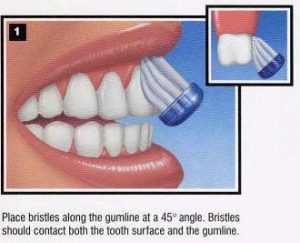Simply brushing our teeth is not enough. In a poll conducted to determine the Top 10 Countries with the healthiest teeth, there was no Asian country in sight. In fact, according to the Ministry of Health Malaysia’s 2015 National Oral Health Survey of Adults, 9 out of 10 had periodontal disease or gum disease. And this likely started out at an early age. In Singapore, shocking statistics showed 50% of preschoolers were already found to have tooth decay.
Taking care of our teeth involves many more steps than just brushing. Read on to hear what dentists themselves have to say about the more commonly neglected aspects of good oral hygiene.
Flossing
People often fail to realise the importance of flossing. Good oral hygiene is not part of the general health curriculum in schools especially in medium to low-income countries. And if it is, it is usually limited to the basic concept of brushing one’s teeth. Flossing removes debris stuck in between teeth, and is essential to prevent gum disease and the formation of cavities on the sides of teeth not exposed to the bristles of a toothbrush.
Regular Dental Visits
A dental check-up is recommended as soon as the first tooth erupts during infancy, which is expected at 6 to 10 months old. Prevention should be the bulk of oral care, not merely about cure and addressing symptoms. This is only possible with regular visits to the dentist to get professional recommendations and advice. Slowly introducing a child to oral check-ups and the environment of a dental clinic will also prevent shock and/or trauma later on if major procedures become necessary.
Dental visits are recommended every 6 months but for someone dealing with poorer oral health, every 4 months is suggested. For many, a visit to the dentist will be the primary source of dental education needed to foster healthy oral habits.
Nutritional Diet
Since dental consultations are not part of the health coverage in most countries especially in the Asia-Pacific region, prevention should be the main priority of oral health care. Nutrition plays a fundamental role in maintaining healthy teeth and gums. Excessive sugar consumption has always been the leading culprit. And it is likely due to the prevalent marketing of soft drinks and other processed food, with little to no education about proper nutrition.
Tobacco Use
Smoking poses a lot of health hazards and oral health is not spared. Teeth discolouration, foul breath, decays, cavities and infections are just a few examples. Treatment response is also better in non-smokers, as compared to those who smoke.
The role of dentists is also pivotal in advocating for smoking cessation measures.
In-between Meals
Snacking, or eating in-between meals is actually proven to have negative effects in terms of maintaining the oral flora. Some bacteria are meant to protect the teeth and gums such as probiotics, which also aids in digestion. But eating increases the presence of bacteria from external sources, in the mouth.
There are harmful ones found in starchy and sugary food. These harmful bacteria are responsible for the acid produced in the mouth during food breakdown. The acid buildup is what ultimately causes cavity formation when not cleaned thoroughly.
If eating in small portions multiple times a day is part of a diet plan, then it is recommended to be more selective in what one is consuming. It might be better to stay away from fast food, carbonated drinks, and sweets. Choose fibre-rich fruits and vegetables, and other whole foods instead. Where possible, rinse your mouth with an antiseptic mouthwash, or brush your teeth after every meal.
Systemic Diseases
Diabetic patients suffer from an exceptionally dry mouth. This increases risk for gum disease since saliva carries a number of good bacteria that balances the microbial system in the mouth.
Chronic stroke patients are also at risk for developing oral infections especially when the feeding medium has been modified. In most cases, the upper digestive tract (mouth, larynx, oesophagus) is spared due to motor loss (loss of chewing and swallowing abilities). Food is then inserted through a tube in the abdominal wall straight to the stomach. Because of this, oral functions are compromised because of chronic disuse.
Pregnant women should also watch out for gum inflammation due to hormonal changes. When complications like these arise, it is best to consult a dentist or doctor right away.
Toothbrushing Technique

Brushing hard is a common misconception in oral care. Brushing hard does not mean brushing well. This is a flawed practice because using excessive force causes abrasion on the surface of the teeth. This eventually exposes underlying structures, leading to tooth sensitivity.
Experts suggest using a light hand in toothbrushing. Use soft bristles instead of hard ones. The Bass Method demonstrates specific techniques in the proper way of brushing the teeth. Angle the brush 45 degrees in relation to the tooth surface. It should be in contact with the border between the gum and the teeth, and the brush should move upwards and in circular motion.
Start adopting the habits of good oral hygiene to ensure your pearlie whites last you well.












